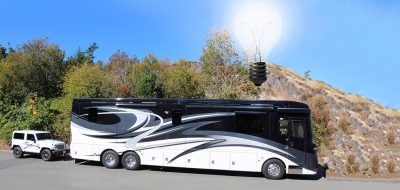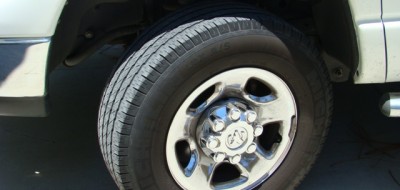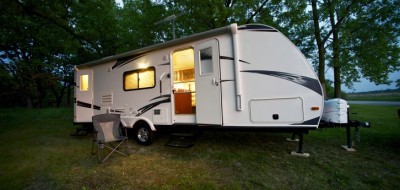In this final post of my series Driving, Mileage, and Fuel, I cover information related to diesel engines and the process of refueling your rig.
Diesel Engines and Refueling
- Buy diesel fuel at truck stops and high-volume distributors because it minimizes the chance of water in the diesel fuel. If water gets into the fuel, it will shut down the engine. – Curtis Greene (CG), Service Manager, Endless Summer RV’s, Frederick MD
- One major benefit of an RV with a diesel engine is that all engine noise is in the rear of the motorhome, not in the driver’s area. Also, there is normally more storage room in the basement compartments, which is especially useful for full-timers. You can have larger floor plans and more and larger slideouts with greater carrying capacity. – CG
- Here are several other reasons for choosing an RV with a diesel engine instead of a gasoline engine:
- Diesel engines provide better overall performance as related to power and weight.
- The engine lasts longer.
- The inside floor layout is on one level.
- You get better handling and steering.
- Most have an air suspension system.
- The unit has a greater gross combined vehicle weight rating.
- There’s a longer period between most maintenance requirements.
- Diesel fuel is not as volatile as gasoline (it combusts at a higher temperature).
(For more information about diesel vs. gasoline engines, refer to the post Gas vs Diesel by fellow blogger Mark Polk.)
- The diesel fuel-dispensing equipment at a truck stop is faster than that at an automobile service station because the dispensing nozzle and hose are designed for a greater volume for flow.
- If you overfill with diesel fuel at a truck stop, instead of wiping off the fuel spilled on the motorhome with a cloth, take the water hose nearby and wash down the area and then wipe it dry. This will prevent dirt in the diesel fuel or on the side of the coach from scratching the paint.
Enjoy your RVing!
Bernice






Larry J. Guthrie
Bernice,
“There’s a longer period between most maintenance requirements.”
True, but the total cost for maintenance is several times more with a diesel. For instance oil changed at 15,000 miles for a diesel vs. 7500 for a gasoline engine. But the gasoline engine will require about 10-12 quarts of oil for those two changes and two filter at about $10.00 apiece.
The diesel with require more than 24 quarts and a filter that costs $30-50.
I know there are those that change oil at 3000 mile intervals on gasoline rigs. I’ve used the factory recommended interval.
Larry
Larry J. Guthrie
Actually Bernice,
Your admonition about washing a diesel spill on the side of the motorhome implies that diesel fuel is relatively dirty. Not true. Diesel and gasoline would have about the same amount of dirt, which isn’t a lot or the fuel filter would quickly clog. Also modern diesel engines and gasoline engines now have about the same delivery system, a fuel pump and injectors.
The only reason for a caveat about dirt in diesel is that since diesel is somewhat more viscous it holds the dirt in suspension somewhat longer. I guess then that a diesel spill could contain enough dirt to scratch paint. However it’s not likely that a quick hose down with a water hose is going to do any good. It’s not likely that the dirt or the diesel with be cleaned that way. Best to use a rag well soaked with soapy water and then rinse.
By the way when an RV is washed there is far more dirt in the tools used to wash the rig than there is in diesel fuel. Think about it. A bucket and a rag is going to have all the dirt in/on it that is washed off the rig. Even a brush or mop on a pole will collect many times more dirt than is in the diesel. Anything that is used to wash a motorhome would be fine to wash the diesel off.
Probably best not to just repeat blindly things heard around the campfire.
I can’t get my rig very clean with water from a hose. Wish I could that would be pretty easy.
Larry
John Manning
Good points, Bernice. I might that a diesel pusher has a much tighter turning radius than a front engined MH. The motor isn’t a constraint up front.
Also, there isn’t the “hump” to crawl over when getting into the front seats. The front seats also adjust back further if you have slide outs